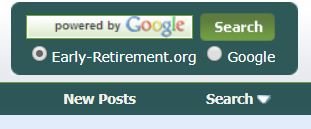Newbie here,
Not quite retired yet, but thinking ahead. Once I'm retired I'd like to get a vacation home. I'm just wondering how hard it is to get a mortgage with no income and would I have to pay a higher rate? I'd be able to pay cash for anything I buy, but with rates so low I think it would make more sense to take out a mortgage and pay it off slowly instead of having to pull out 401K money and get hit with a big income tax bill.
Note I fully own my current house (no mortgage), so this would be my only mortgage.
Jeff
Not quite retired yet, but thinking ahead. Once I'm retired I'd like to get a vacation home. I'm just wondering how hard it is to get a mortgage with no income and would I have to pay a higher rate? I'd be able to pay cash for anything I buy, but with rates so low I think it would make more sense to take out a mortgage and pay it off slowly instead of having to pull out 401K money and get hit with a big income tax bill.
Note I fully own my current house (no mortgage), so this would be my only mortgage.
Jeff

